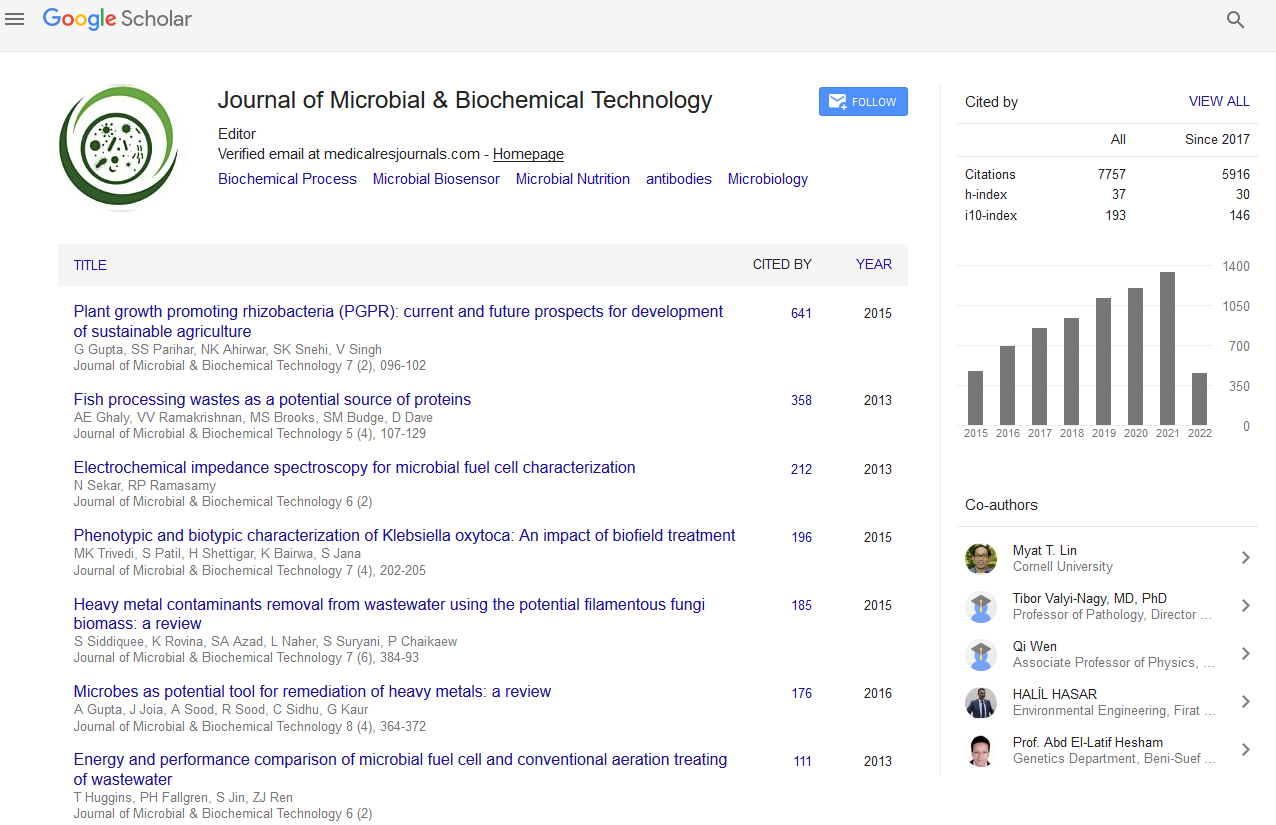PMC/PubMed Indexed Articles
Indexed In
- Academic Journals Database
- Genamics JournalSeek
- Academic Keys
- JournalTOCs
- China National Knowledge Infrastructure (CNKI)
- Scimago
- Access to Global Online Research in Agriculture (AGORA)
- Electronic Journals Library
- RefSeek
- Directory of Research Journal Indexing (DRJI)
- Hamdard University
- EBSCO A-Z
- OCLC- WorldCat
- SWB online catalog
- Virtual Library of Biology (vifabio)
- Publons
- MIAR
- University Grants Commission
- Geneva Foundation for Medical Education and Research
- Euro Pub
- Google Scholar
Useful Links
Share This Page
Journal Flyer

Open Access Journals
- Agri and Aquaculture
- Biochemistry
- Bioinformatics & Systems Biology
- Business & Management
- Chemistry
- Clinical Sciences
- Engineering
- Food & Nutrition
- General Science
- Genetics & Molecular Biology
- Immunology & Microbiology
- Medical Sciences
- Neuroscience & Psychology
- Nursing & Health Care
- Pharmaceutical Sciences
Abstract
Recent Technology of Clinical Microbiology; Whole Genome Sequencing (WGS) and Matrix-Assisted, Laser Desorption Ionization-Time of Flight Mass Spectrometry (MALDI-TOF MS)
The hottest issue in the field of clinical microbiology in latest years is the application of whole genome sequencing (WGS) to the clinical diagnostics and therapeutics through the methodology of Next generation sequencing. The application of WGS includes species identification, epidemiological study and study of antimicrobial resistance and so on. The single nucleotide polymorphism (SNP) based analysis increases the accuracy and sensitivity of species identification by marked discriminatory power, and the ability of tracking of transmission process enables infection control including outbreaks. We can clarify the antimicrobial resistance mechanism of extended spectrum betalactamases or carbapenemases and elucidate the mechanism of horizontal transfer of mobile genomic islands. In case of setting up a new PCR method, the target and the primer could be chosen by using WGS databases. The MALDI-TOF method is used in nearly all laboratories, identifying bacterial, fungal and mycobacterial species. Direct identification in blood culture bottle is possible in bacteremia patients, and Beta-lactamases or Carbapenemases can be detected. In addition, it can be applied in Shiga toxin E. coli, Salmonella serotypes or C. difficile ribotypes.


